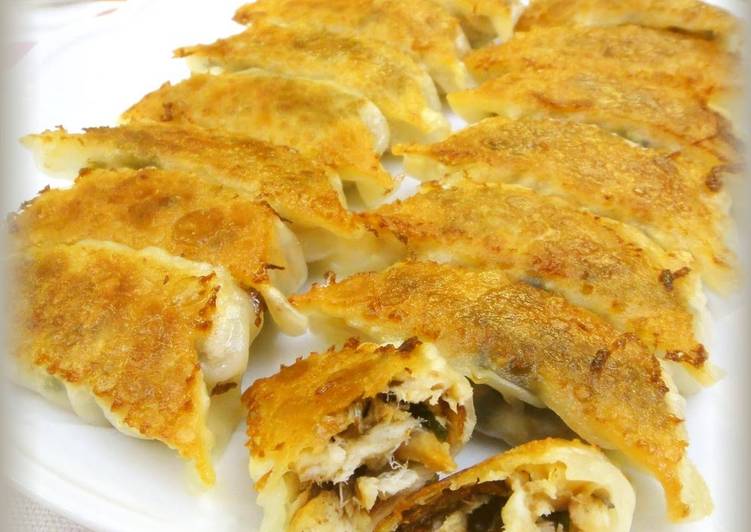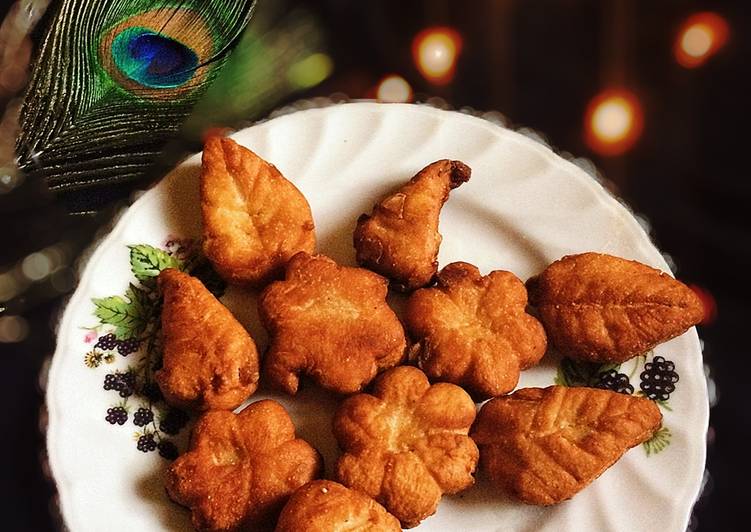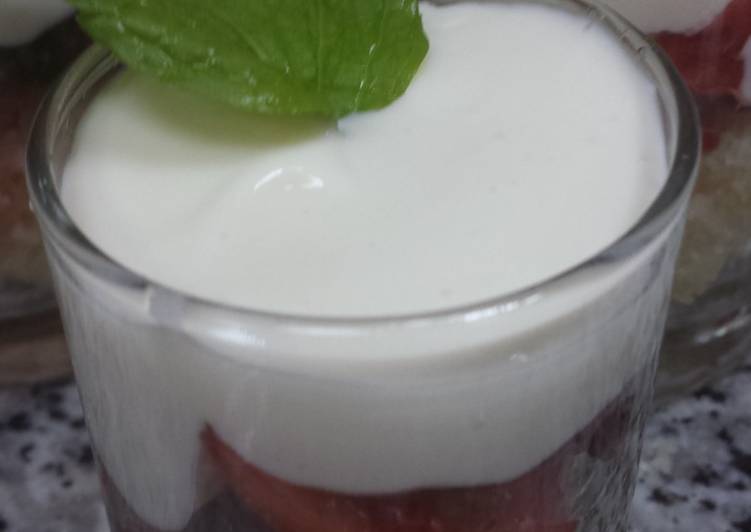
Hello everybody, I hope you’re having an incredible day today. Today, we’re going to make a distinctive dish, salted mackerel and umeboshi gyoza dumplings. One of my favorites food recipes. For mine, I am going to make it a bit unique. This is gonna smell and look delicious.
Salted Mackerel and Umeboshi Gyoza Dumplings is one of the most popular of recent trending meals on earth. It is easy, it is fast, it tastes delicious. It is appreciated by millions every day. Salted Mackerel and Umeboshi Gyoza Dumplings is something that I have loved my whole life. They are nice and they look wonderful.
My favorite dish is salt mackerel.yup! Try it with some johnny cake (fried dumplings)! Tell me what you want me to cook for you next?
To begin with this recipe, we must first prepare a few components. You can have salted mackerel and umeboshi gyoza dumplings using 7 ingredients and 8 steps. Here is how you can achieve it.
The ingredients needed to make Salted Mackerel and Umeboshi Gyoza Dumplings:
- Get 2 pieces Salted mackerel
- Get 2 medium Umeboshi
- Make ready 5 to 10 Shiso leaves
- Take 1 tbsp Sesame oil
- Get 15 Gyoza skins
- Prepare 2 tbsp Sesame oil to cook the dumplings
- Make ready 2 tbsp Sesame oil for finishing
Put pork, sake, salt, and sugar in a bowl. Combine garlic, ginger, soy sauce, sesame oil, potato starch, cabbage, and chive. As far as dumplings go, Japanese-style gyoza are some of the simplest to make, if only for the fact Dumpling-making goes faster when there are friends involved. This article covers every trick and I use two teaspoons of kosher salt for a pound of cabbage, letting it drain in a strainer set over a bowl.
Steps to make Salted Mackerel and Umeboshi Gyoza Dumplings:
- Cook the mackerel on both sides until browned. I pan fried them in a frying pan. You can microwave or grill them if you like!
- Flake the fish. Chop up the umeboshi (pits removed). Finely chop the shiso leaves. You can add some of the fish skin, finely chopped, if you like - it's delicious!
- Put all the ingredients in step 2 in a bowl and mix with 1 tablespoon of sesame oil. Make the gyoza dumpings.
- Heat 2 tablespoons of sesame oil in a frying pan and put the gyoza dumplings in.
- Turn up the heat to high. Add enough water to cover the bottom of the frying pan. Cover with a lid and steam-cook the dumplings. Turn down the heat to medium about halfway through.
- When all the water in the pan is gone, drizzle the remaining 2 tablespoons of sesame oil over the dumpings. Put the lid back on and cook until the dumplings are crispy and browned on the bottom. Done!
- The gyoza dumplings look like this on the inside.
- These appeared on a recipe card issued by Moranbon (a famous yakiniku barbecue chain in Japan).
Gyoza vs dumpling or gyoza vs jaozi??? ✅ Really, which one is it really? ✅ Phew, it's all confusing and that's why this article is here to clear up Are dumplings Japanese or Chinese? Can dumpling refer to just one kind of dumpling? This particular recipe is made healthier with the addition of silken tofu. A wide variety of gyoza dumpling options are available to you, such as warranty of core components, local service location, and key selling points. "[Yamamoto's] new book, Gyoza: The Ultimate Dumpling Cookbook, opens our minds to the innumerable possibilities that lie within the humble dumpling wrapper…With practical tips scattered through the book, and a primer on wrapping techniques, Yamamoto-san has your back for when you. Gyoza is a traditional Japanese food which is known because of its beautiful and unique way of how they are folded.
So that is going to wrap it up for this exceptional food salted mackerel and umeboshi gyoza dumplings recipe. Thanks so much for your time. I am confident you will make this at home. There’s gonna be more interesting food at home recipes coming up. Don’t forget to bookmark this page on your browser, and share it to your loved ones, colleague and friends. Thanks again for reading. Go on get cooking!

